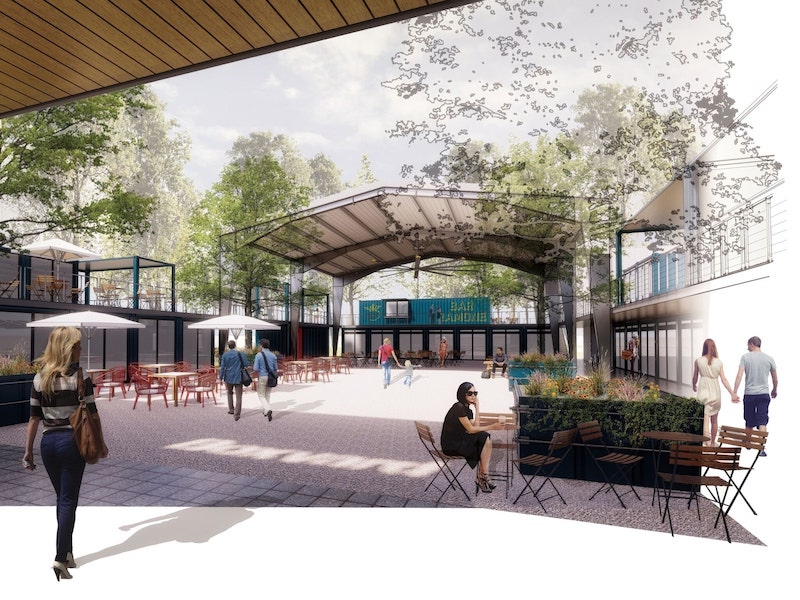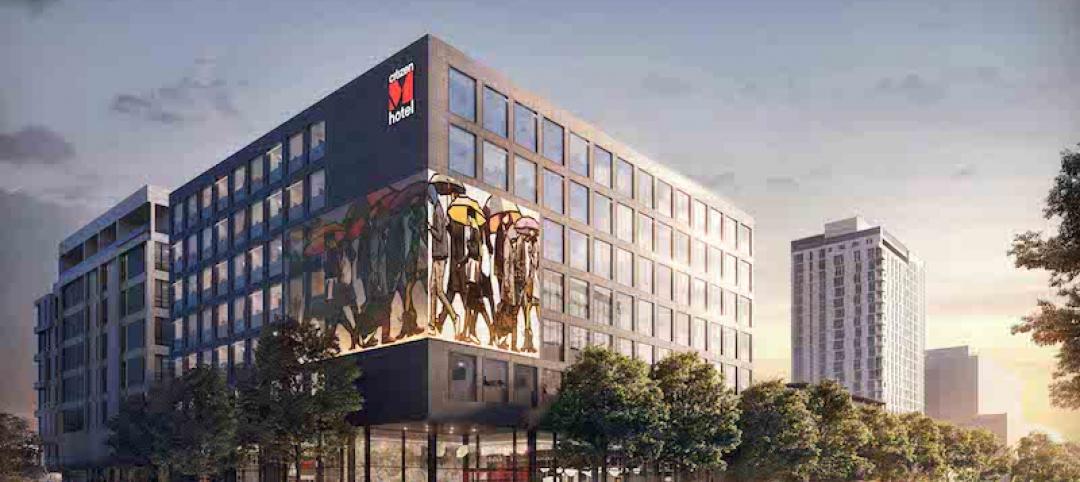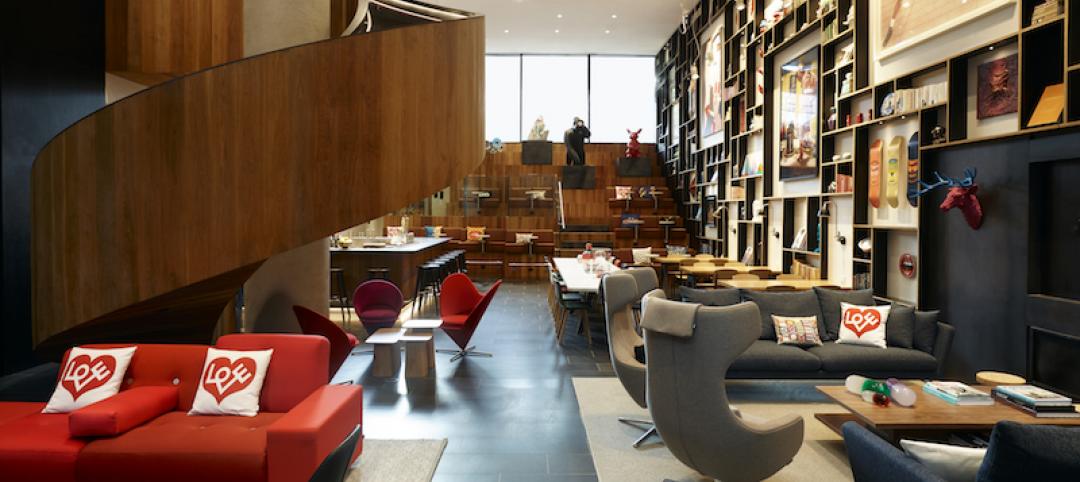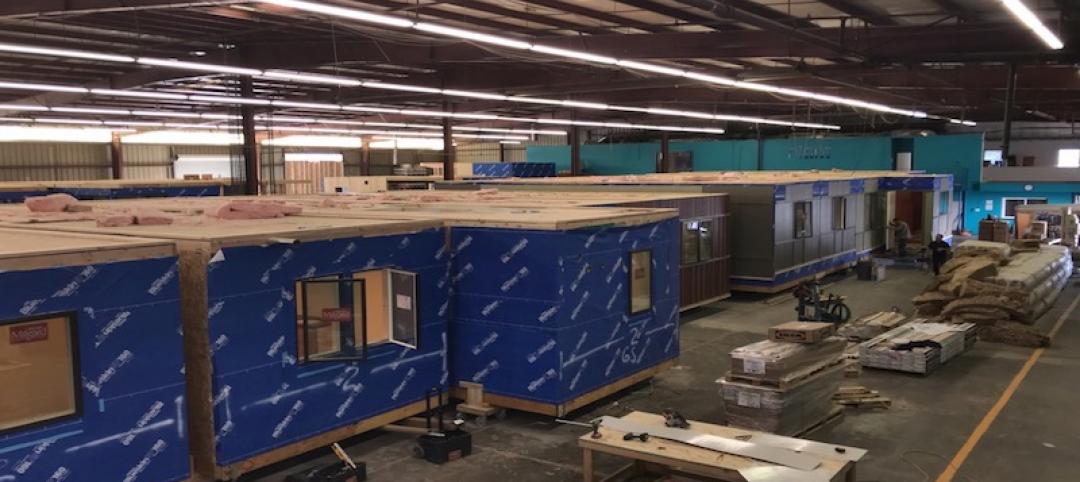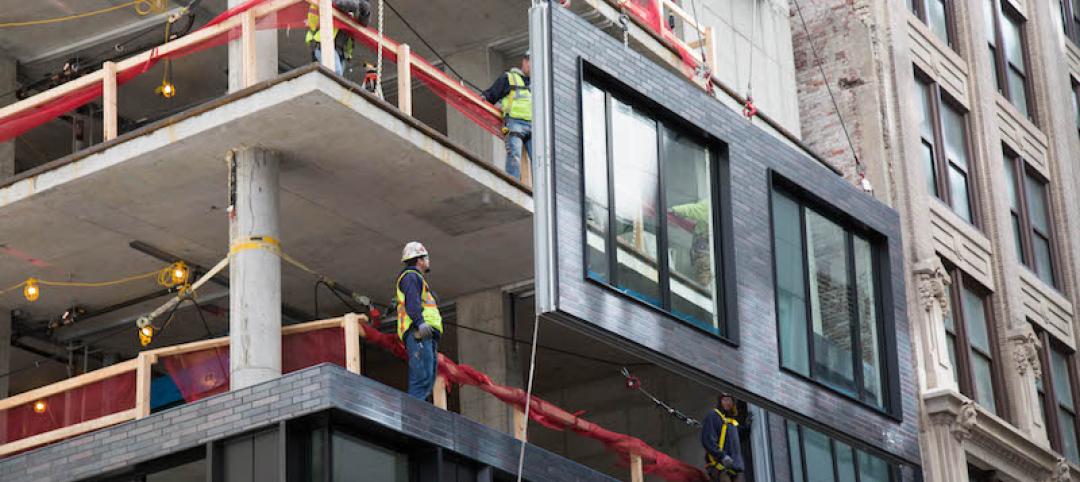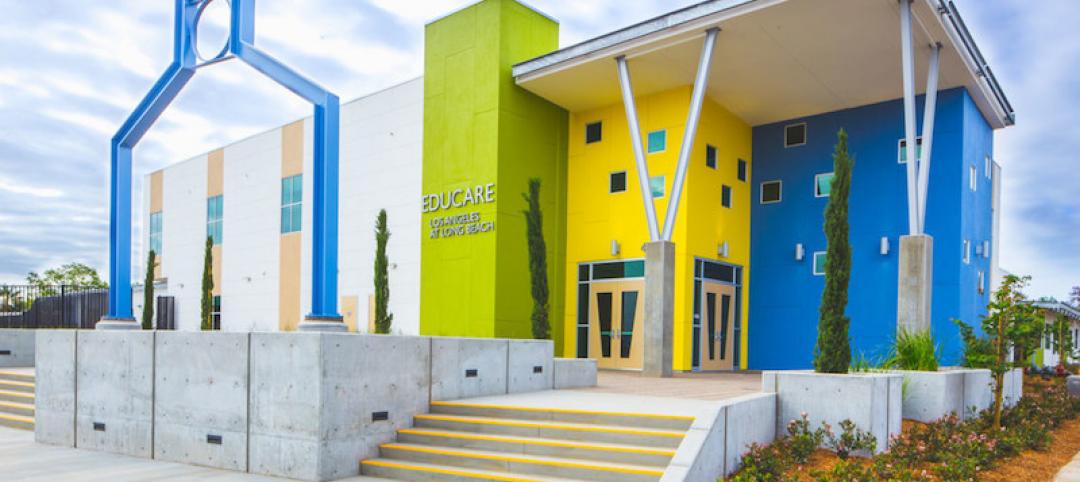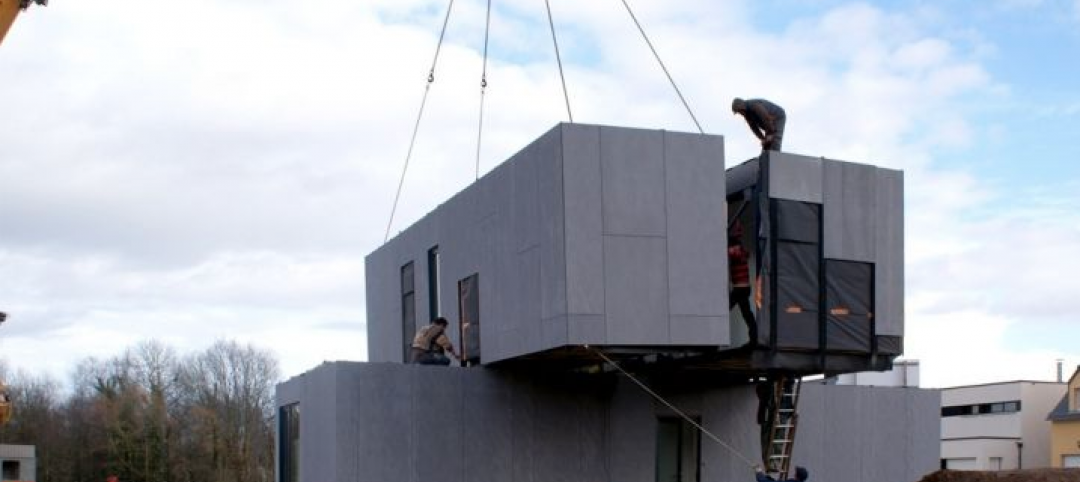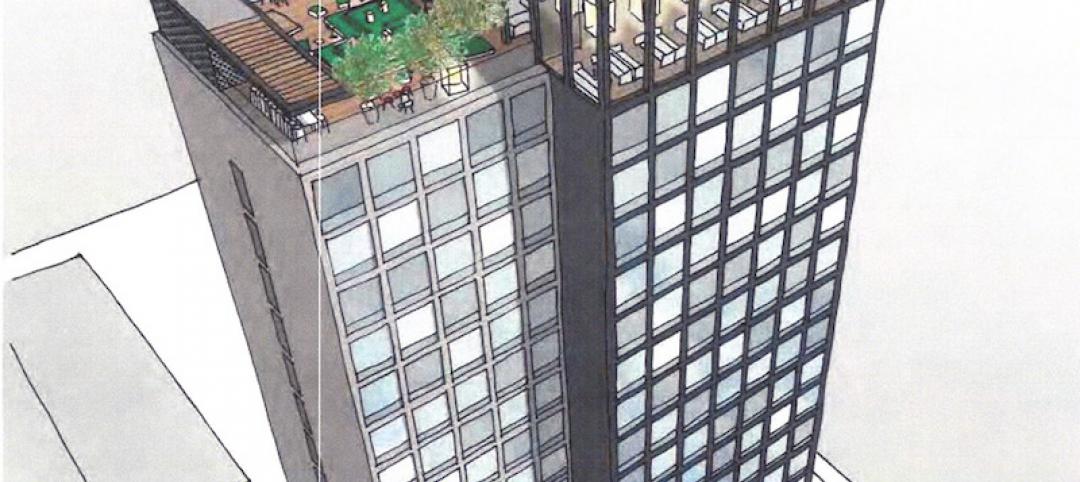The 7,000-acre Research Triangle Park (RTP) in North Carolina, founded in 1959, is the largest research park in the U.S. Nestled near Durham, Raleigh, and Chapel Hill, the park is home to more than 300 companies, 50,000 employees and 10,000 contractors focused on research, biotech, life sciences, and computing.
In March 2019, the Research Triangle Foundation, which owns and manages the park, announced its plans to construct Boxyard RTP, a 15,000-sf development within the park’s Frontier RTP campus made from repurposed shipping containers. Boxyard RTP, which is in the planning stages and is scheduled to open later this year, would be the park’s first food and retail complex. It will have space for up to nine food and beverage vendors, as well as several retailers and service providers.
The food and beverage container spaces will come with partial kitchen equipment upfits. The complex will include covered spaces for seating, special events, and performances.
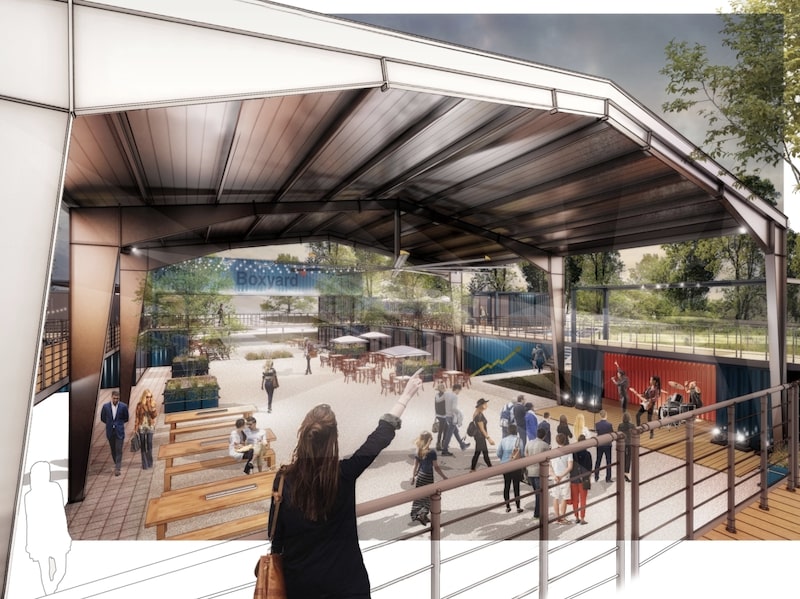 Performance space will face the courtyard at Boxyard RTP. Rendering: CallisonRTKL
Performance space will face the courtyard at Boxyard RTP. Rendering: CallisonRTKL
“Boxyard RTP is a workhorse opportunity for RTP and the region,” says Scott Levitan, president and CEO of the Research Triangle Foundation, in a prepared statement. “Experimental food, libations and retail, cool programming and event opportunities will flip the energy switch for RTP and our neighborhood communities.”
The Boxyard concept takes its name and inspiration from an existing development of 39 repurposed containers in the East Village district of Tulsa, Okla., developed by Nelson + Stowe Development and opened in December 2016. (The contractor on the Tulsa project was Ross Group, and the fabricator was Cisco Containers.)
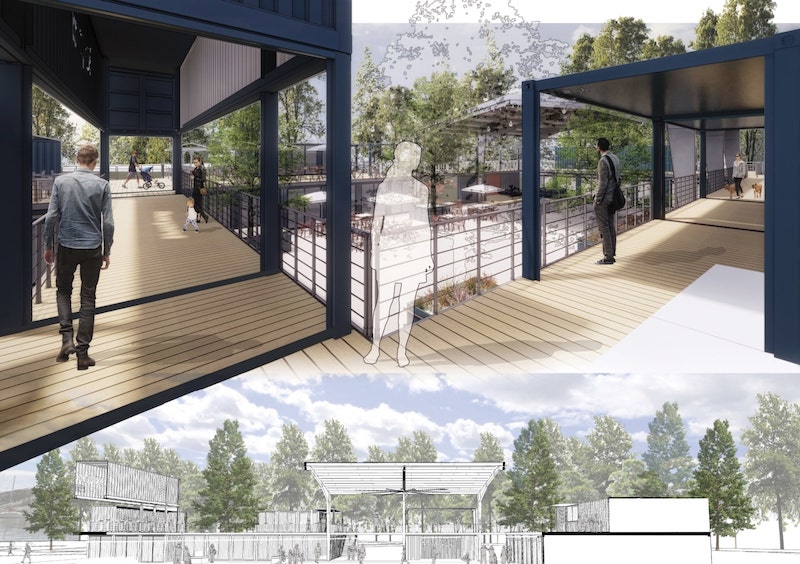 The concept aspires to retain as much of the lot's landscaping and trees as possible. Rendering: CallisonRTKL
The concept aspires to retain as much of the lot's landscaping and trees as possible. Rendering: CallisonRTKL
SHIPPING CONTAINER CONCEPT DESIGN PRESERVES NATURE
At Research Triangle Park, Boxyard RTP’s 38 shipping containers will be situated on a 12-acre wooded lot once dominated by railroad interchanges. CallisonRTKL, which designed the North Carolina concept, is incorporates existing landscaping and trees. The prefabricated shipping containers are modular and can be stacked, so minimal site disturbance will occur during construction.
The modular design is also flexible enough to accommodate the needs of different vendors.
The $7 million Boxyard RTP is organized around a central courtyard, with retail, food, and beverage stalls throughout the public space. The performance stage will face the courtyard, and upper level patios will provide seating and walkways. (Maverick Partners Realty Services is the leasing agent for this project.) As of this morning, Boxyard RTP’s website listed 10 vendors that have committed to leasing space, ranging from a brewery and a virtual-reality game room to a boutique flower shop.
 The $7 million Boxyard RTP complex will sit on 12 acres within the park's Frontier campus. Image: WRAL
The $7 million Boxyard RTP complex will sit on 12 acres within the park's Frontier campus. Image: WRAL
Related Stories
Modular Building | Oct 31, 2018
Europe’s citizenM is trying to crack into the U.S. hotel market with steel-framed modular construction
Projects in several cities are in various stages of development.
Modular Building | Oct 12, 2018
DeSimone Consulting Engineers designs the tallest modular hotel in the United States
The hotel was originally designed as a cast-in-place concrete structure.
Modular Building | Sep 25, 2018
Amazon invests in a prefab module supplier
Los Angeles-based Plant Prefab targets single- and multifamily construction.
Modular Building | Aug 6, 2018
More contractors are turning to offsite production for speed and quality
Skender launches an advanced manufacturing division. Katerra ups its bet on modular. Prefabrication comes to the rescue on multiple projects.
Modular Building | Aug 2, 2018
Educare Center in Long Beach uses modular construction to cut costs without sacrificing space or amenities
Dougherty was the Architect-of-Record.
Modular Building | Jul 23, 2018
Offsite construction: Why it’s important for the survival of your firm
The industry is approaching its “heart attack moment,” with so many large projects that are chronically late, over budget, and unprofitable, writes FMI Capital Advisors’ Michael Swistun.
| May 30, 2018
Accelerate Live! talk: An AEC giant’s roadmap for integrating design, manufacturing, and construction
In this 15-minute talk at BD+C’s Accelerate Live! conference (May 10, 2018, Chicago), Skender CEO Mark Skender and Chief Design Officer Tim Swanson present the construction giant’s vision for creating a manufacturing-minded, vertically-integrated design-manufacturing-build business model.
| May 30, 2018
Accelerate Live! talk: From micro schools to tiny houses: What’s driving the downsizing economy?
In this 15-minute talk at BD+C’s Accelerate Live! conference (May 10, 2018, Chicago), micro-buildings design expert Aeron Hodges, AIA, explores the key drivers of the micro-buildings movement, and how the trend is spreading into a wide variety of building typologies.
Modular Building | Jan 12, 2017
The largest modular construction hotel project in New York City is starting to get pieced together
The hotel’s 300 rooms are made from 210 prefabricated pods from Polcom Modular.
Building Materials | Jan 9, 2017
Architects and researchers are developing new techniques for building in space
As setting foot on Mars becomes a more realistic goal, the search for how to best develop Architecture for the Red Planet is heating up.


